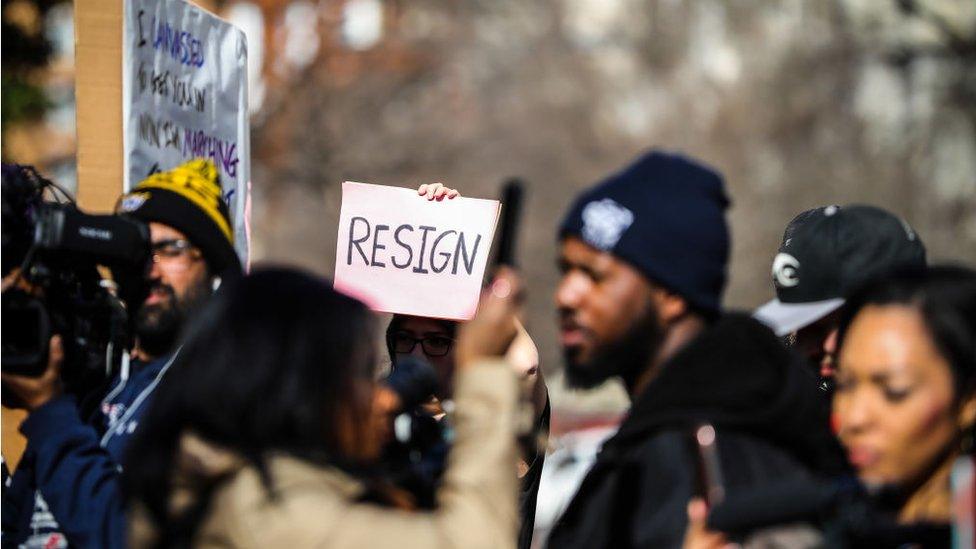Virginia couples challenge laws requiring them to declare their race
- Published
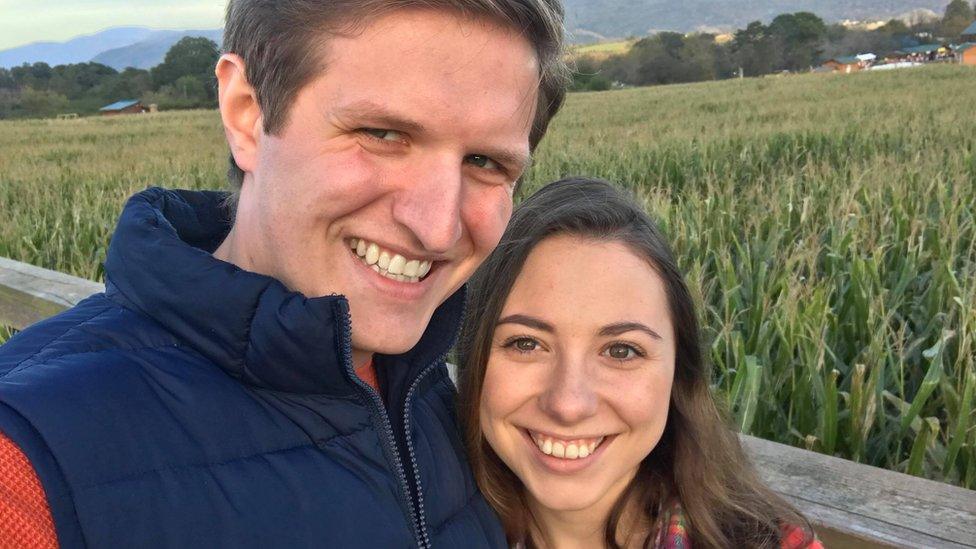
Brandyn Churchill and Sophie Rogers have faced a delay in registering for their marriage licence
In the US state of Virginia, couples must declare their racial background from a long list of options including "Aryan", "Moor" and "Octoroon" before getting married. A lawsuit is aiming to put a stop to this.
The suit, filed by lawyer Victor M Glasberg on behalf of three couples, describes the statute as "unconstitutional" and "reflective of a racist past".
Mr Glasberg has also written to Democratic Governor Ralph Northam, external, urging him to "do what must be done to get on the right side of history".
One of the couples involved - Brandyn Churchill, 27, and Sophie Rogers, 23, of Lexington, Virginia - is hoping to have won the case by the time they get married next month.
But they have meanwhile asked for an injunction so that they will not be denied a marriage licence by the clerk for refusing to have their race recorded.
The complaint has been brought against the Virginia State Registrar, the Arlington Circuit Court clerk and the Rockbridge Circuit Court clerk.
However in the letter to Governor Northam, Mr Glasberg notes that he has sued the defendants "solely in their official capacity". He adds: "I do not believe any of them supports the statutory requirement at issue."
The other two couples involved are Ashley Ramkishun and her fiancé Samuel Sarfo and Amelia Spencer and her fiancé Kendall Poole.
In the documentation all state they wish to get married in Virginia but not if they "must label [themselves] with a race in order to get a marriage licence".
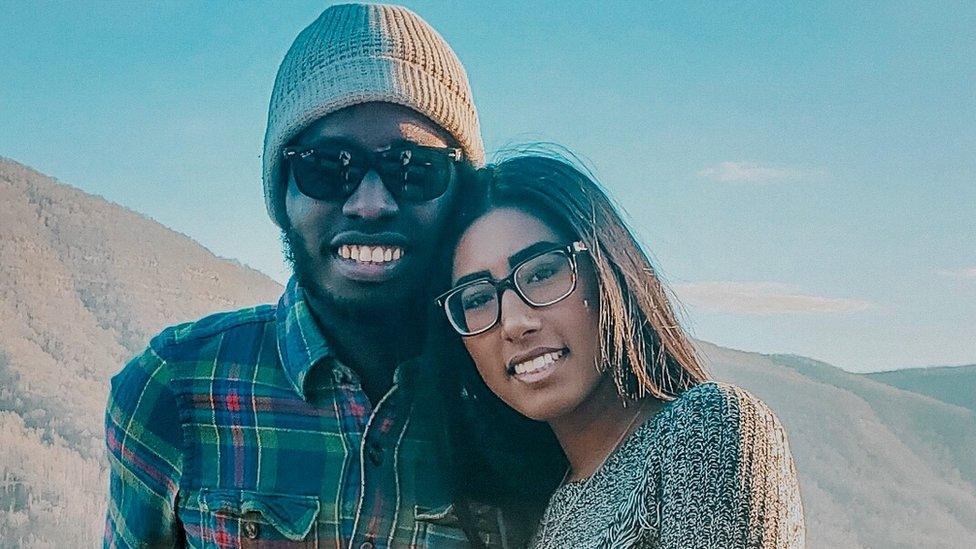
Samuel Sarfo and Ashley Ramkishun have lived in Virginia for 10 years
Ms Rogers told the BBC: "We got engaged in July 2018. In Virginia you have 60 days to apply for the licence before the registry. We applied for our licence in Rockbridge County and went to the clerk's office on 3 September. The clerk tried to fill out the application without the race question filled for us but the computer wouldn't let her."
Mr Churchill added: "Many of the categories were outdated, offensive racist terms which have no place in the 21st century. We said we were uncomfortable and left."
Virginia is one of eight states in the US with this legal requirement to identify race prior to marriage.
Mr Glasberg notes that in Virginia, "this requirement reflects a regulatory scheme embodied in the Virginia Racial Integrity Act of 1924, originally called 'An Act to Preserve the Integrity of the White Race'."
He says that the requirement for race on marriage records was grounded in bigotry.
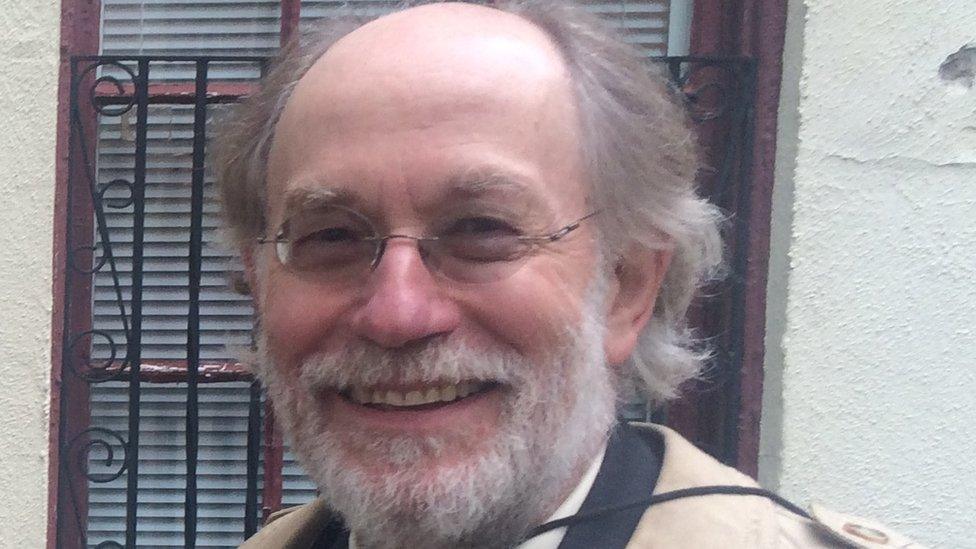
Lawyer Victor M Glasberg has been pursuing the case for many years
Mr Glasberg, 74, told the BBC that he had been mulling a challenge for many years. When he got married in 1981, he asked if he could put "human" down in the category but was told no.
Ms Ramkishun, 26, said she had decided to join the lawsuit after attempting to register for her marriage at Arlington Circuit Court and discovering that there was no option not to put race.
"We didn't feel comfortable. We were told we could put 'other' down as an option but that's not what we are. It was either 'pick other, pick a race or you can't go ahead'."
Mr Churchill was positive about his chances of success. "A requirement like this might have been Virginia's past but it's not its future," he said.
"We are not telling people they can't identify with a certain race. We are saying it's not the State's place to compel individuals into certain categories."
The governor's office said it does not comment on pending litigation but a spokeswoman added: "Governor Northam is dedicated to addressing racial discrimination in all its forms, and recently established a commission to examine the vestiges of racially discriminatory language in Virginia law."
Charlotte Gomer, press secretary for the Office of the Attorney General said: "Although it's not readily apparent why state law requires the collection of this data on the marriage licence application, we will examine the complaint closely and carefully to determine how best to proceed."
- Published3 September 2019
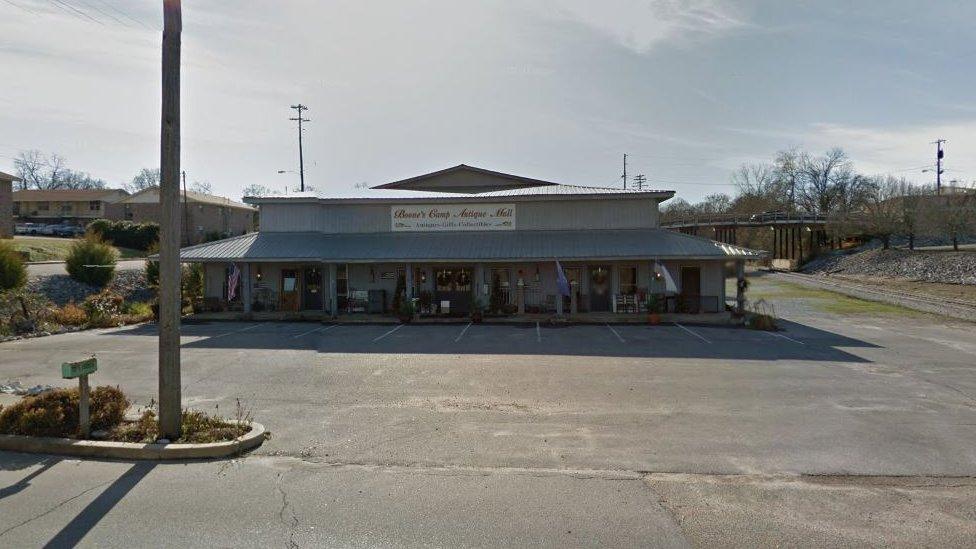
- Published8 February 2019
